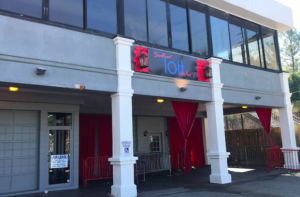
(WSBTV 2)
Could the tragic shooting of an innocent bystander have been prevented, and are justice and compensation available to Emeka Onyekwe’s family?
An altercation escalated into gunfire at a Buckhead nightclub Friday morning, October 5, 2018, tragically claiming the life of a 36-year-old Emeka Onyekwe.
According to The Atlanta Journal-Constitution, the shooting occurred outside “[a club] in the 2000 block of Tula Street.” Bystander Emeka Onyekwe “was caught in the crossfire when an argument inside the bar spilled outside.”
“You could tell they were going to get a weapon or whatever because they were talking a lot of mess. When they came back inside, they just started popping their guns, pow, pow, pow! Just crazy,” a witness told WSB-TV 2.
Police have allegedly since charged a suspect in connection with the shooting.
Was negligent security a factor in this senseless loss of life? Read Our Legal Take below to find out if Emeka Onyekwe’s family may have legal avenues for justice and claims for substantial compensation in Georgia.
Our Legal Take
Nightclub patrons have a right to feel safe and secure while on the premises. The Murray Law Firm questions the level of security provided at the nightclub and whether this tragedy may have been prevented.
- Were any attempts made by nightclub management or security to de-escalate the initial altercation and safely and separately remove all parties involved from the premises, prior to gunfire? Were police called at the start of the initial dispute?
- What security measures, such as weapons screenings, surveillance cameras, bright lighting, and security personnel, were in place to deter crime and protect Emeka Onyekwe at the time of the shooting?
By law, property owners in Georgia are required to protect all those legally on the premises from any foreseeable harm. Should the facts of this matter reveal that the nightclub owner failed to provide adequate security, Emeka Onyekwe’s family may seek justice and elect to pursue legal claims for their loss.
The Murray Law Firm has recovered millions of dollars for victims of unsafe properties in Georgia, and recently obtained a $29.25 million dollar verdict in Georgia.
We represent our Clients on a contingency agreement, which generally means that no fees or payments are owed until and unless we recover. Anyone seeking further information or legal representation is encouraged to contact us via e-mail (click here) or by telephone at CALL NOW: 404.842.1600. Consultations are free and confidential.
CALL NOW: 404.842.1600
Choosing the Right Attorney
Selecting the right attorney for you or your family is highly important. You must feel confident that the attorney you hire has a complete understanding of the law applicable to your particular case, and has successful experience in handling such cases.
Important: Do not hire a lawyer who has violated the Rules of Professional Conduct!!!
You should not hire an attorney who calls you or visits you unsolicited, or anyone that contacts you directly to offer legal services. This activity is strictly prohibited by Rule 7.3 of the American Bar Association (ABA) Model Rules of Professional Conduct, which states as follows:
 A LAWYER “SHALL NOT” CONTACT A PROSPECTIVE CLIENT THROUGH A “LIVE TELEPHONE” OR AN “IN-PERSON” VISIT.
A LAWYER “SHALL NOT” CONTACT A PROSPECTIVE CLIENT THROUGH A “LIVE TELEPHONE” OR AN “IN-PERSON” VISIT.
– RULE 7.3, ABA MODEL RULES OF PROFESSIONAL CONDUCT.
If an attorney, or someone acting on behalf of an attorney, contacts you in this manner, that attorney is in violation of this Rule. This unethical and unprofessional activity on the part of the lawyer is good sign that you should stay away. It is imperative that you are represented by an attorney who is capable of advocating for you within the confines of the law, and an attorney who fails to abide by the Rules of Professional Conduct is probably not the best fit. In fact, any such attorney should be immediately reported to the local State Bar Association. If you have been contacted in such an unsolicited manner, contact us and we’ll assist you in filing a report.
Contingency Fees Disclaimer: “Contingent attorneys’ fees refers only to those fees charged by attorneys for their legal services. Such fees are not permitted in all types of cases. Court costs and other additional expenses of legal action usually must be paid by the client.”
SaveSave
 Georgia Legal Report
Georgia Legal Report



